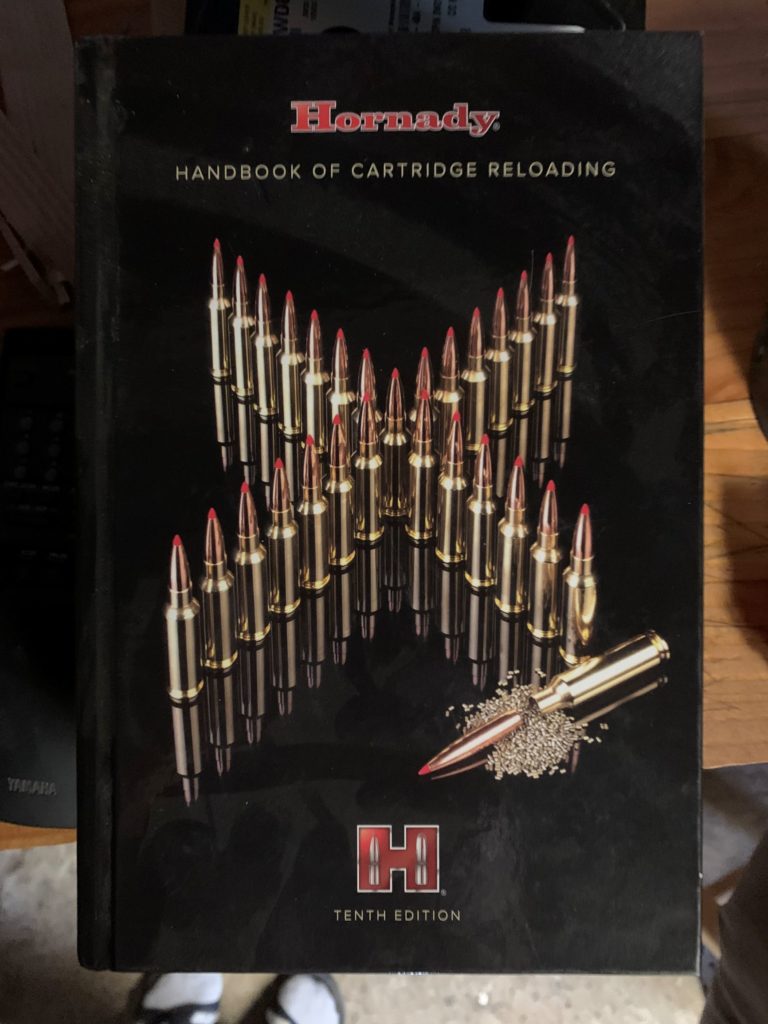Another Thursday has rolled around, seems like we were just here. I have little to report as of the last week, I have spent most of my time adjusting to my new schedule. I am trying to target better bedtimes for appropriate rest. This is one of the things that I have identified as a success criteria this time.
I know that I was in a state of chronic fatigue. It definitely took some time, I would say probably a month to six weeks to begin to feel rested again. That is not typically a luxury that a working person has, taking a month off to recover. It definitely plays a role in what I am going to accomplish moving forward as well. Night time has overflow capacity to spill what you are working on into time that you should be getting ready for bed.
Maybe sleep patterns are ‘Tacticool’ to some, but they don’t fit my definition. This week, I have been advising my dad on some reloading tips. He is a reloader from way back. Reloading goes along with frugality, hunting and the rural lifestyle so it seems to fit the bill as something I was exposed to as a youngster. I should say too, we weren’t big shooters growing up, needless to say that we didn’t do it often.
That is why when I shot some of the loads he made up thirty years ago, I had some issues. I had bullets that weren’t well seated and cartridges that didn’t chamber to name a few issues. I mentioned it a few years ago and now that he wants to load some rifle cartridges, he was asking my opinion about what was wrong. Reloading is not difficult but does benefit from a meticulous approach. I would also say that it does require a minimum level of equipment to get started. Even the various starter kits don’t provide everything necessary to get started.
Take calipers for example. While not strictly necessary, case length and overall cartridge length are critical measurements to properly chamber a round. No kit that I know of contains calipers. And what if the case length is too long, how do you correct that? Brass has to be trimmed. My dad does not have a trimmer (good luck finding anything these days) so I loaned him mine.
Reloading is an entire hobby unto itself. Some obsolete cartridge brass can be manufactured out of others. You can get into bullet casting from lead. Then there is what load/bullet perform best for your firearm. Wildcatting is making your own cartridges.

Even if you have zero interest in reloading, having a manual can be useful. I have several and I also use online manufacturers sources as well. There is always cartridge information, specifications and loads showing what is popular and potentially available. These days, the internet can do many of these things but I think that it is helpful when developing a load to cross check multiple sources because errors can have serious consequences. It should also be noted that there is a warning to only use current, professionally published data is recommended. Just because you can do something doesn’t mean that you should.
I also keep a log book of my loads because each firearm potentially performs best with a different load combination. I am not at the point where I can say that I have mastered all of those variables for each firearm so I keep track and make notes after shooting. The thought is that at some point I will aggregate all of the data points and refine my loads to the best performing suggestions.
Everyone in the firearms community by this point knows that everything is in scarcity and reloading components and tools are no exception. So, unless you have been collecting all of the materials pre-pandemic this is not a time that you will likely get started. I would say that I had all of the tools for four years before I made my first cartridge.
My long term strategy was to 1) set a minimum factory ammunition goal 2) shoot enough factory ammunition to build a brass cache for reloading 3) build enough reloaded ammunition to maintain a sufficient inventory (for times like these) and then 4) build enough components stock to weather a long term outage. You will probably never have everything that you want, but I would say that I have some. I think that I talked about the last shortage being only primers which I do have plenty for now but not bullets or powder for experimenting.
If you think that you might want to get into it at some point, save your brass, buy a manual and build a workspace. Secondhand reloading equipment is good value as well if you can find it. Maybe you know someone that does it and can teach you or help you or share equipment.
Recent Comments